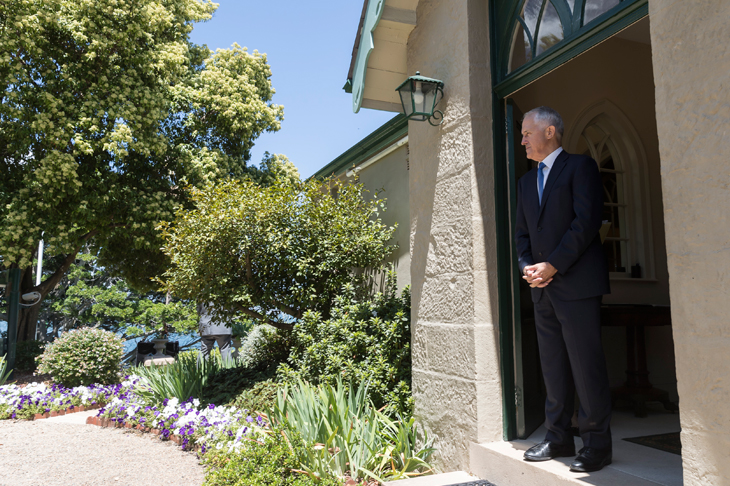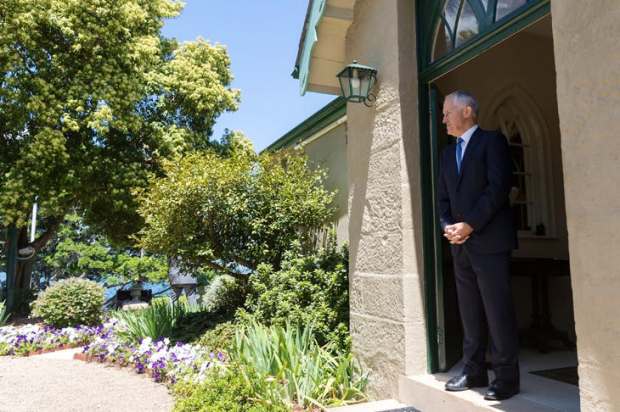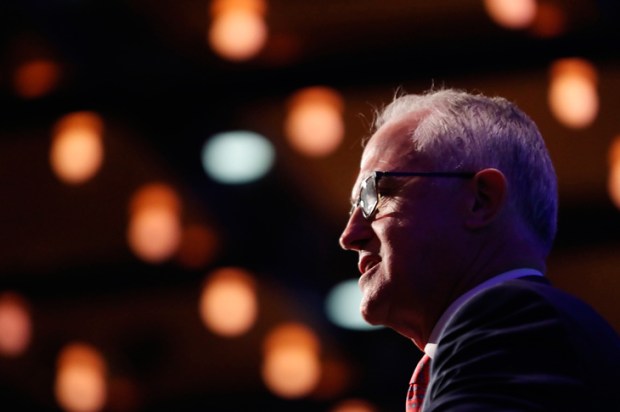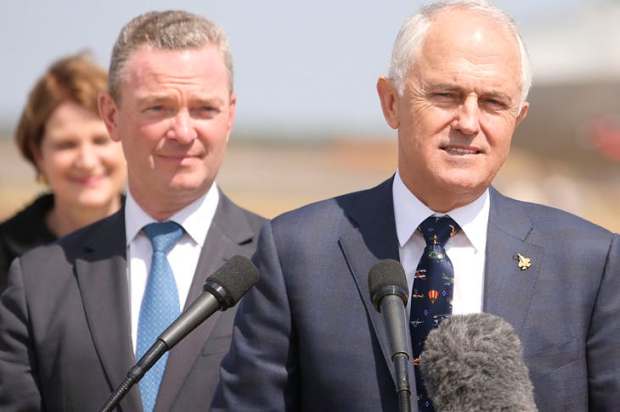Most people are bemused when I predict that Malcolm Turnbull won’t be prime minister by the end of the year. There’s no obvious alternative, they say; the Libs wouldn’t want to emulate Labor by yet again failing to allow a PM to complete a term, they mutter; a revolving door prime ministership is really bad for the country, they claim. And all of this is true. Still, it is likely that there will be a new prime minister by year’s end because Turnbull seems incapable of improving his performance.
Turnbull know he’s under great stress and it shows. Last week, he announced his fourth ministerial reshuffle in just 16 months in office. Along with NSW Premier Mike Baird’s abandonment of his post, this forced reshuffle added to the sense of impermanence that now grips our polity. In Canberra, we had five prime ministers in five years. Now, there have been seven premiers of our biggest state in a decade. The more leaders turn over, the worse it is for good government. But the more they turn over, the less secure each leader becomes. A prime minister who can’t keep the same team for more than a few months can hardly expect his own position to be secure.
Turnbull cited two justifications for his leadership coup: first, that Abbott had lost 30 Newspolls in a row; second, there was no consistent economic narrative.
But what happened? Turnbull was going to restrict negative gearing, and then he wasn’t; he was going to increase the GST take, and then he didn’t; his government was never going to increase superannuation tax, and then it did. He called an election over two industrial relations bills that had been defeated twice in the Senate, and then hardly mentioned them in the interminable federal election campaign. It’s no wonder that Turnbull lost 14 seats overall, and would have lost the election but for the Country Fire Authority issue in Victoria and the National Party running a successful ‘different-and-better’ grassroots campaign.
Since all-but-losing the election, Turnbull has lost six Newspolls in a row. Sometime towards the end of the year, he can expect to notch up the dread 30 successive losses. If the government had a bold reform agenda, it could recover; but if the prime minister has one why would he wait so long to reveal it? If the government were united, it could recover; but if Turnbull wanted to hold out an olive branch to conservatives, why did he not do so when it might have been accepted? If the government were able to score points against the opposition, it could recover; but if Turnbull had the ability to rout the other side, why wasn’t some of that fighting spirit seen in the election campaign when it was most needed?
Turnbull can’t fight for reform because the only things he believes in (apart from being prime minister) are causes that a centre-right government can’t readily embrace, namely gay marriage, republicanism and emissions trading. He can’t inspire unity because he was the one who most destroyed it in the first place. And he can’t effectively take on the opposition because his forte is boardroom back-stabbing and bullying rather than the hard daily grind of practical politics.
For Turnbull, it can only get worse. Yes, he is not currently being actively destabilised because the Liberals’ destabiliser-in-chief is now prime minister. Yes, there’s not too much white-anting because most of the ambitious nobodies have been given promotions or been turfed out of the parliament. And yes, most of his colleagues think that one catastrophic leadership change is enough. But as certain as night follows day, a government that’s sure it’s doomed will change its leader. Why would the Liberals show character and fortitude under Turnbull when they didn’t show it under Abbott who had done more to deserve their gratitude?
Abbott’s office came under much criticism for ‘command and control’, but the only minister who was forced to step aside in two years did so for alleged misdeeds prior to entering parliament. It is the job of the prime minister’s office to save ministers from themselves. But Turnbull’s office has been indulgent rather than strict. Moreover it has overseen a blowout in senior advisers from 60 under Abbott to over 100 now.
The Turnbull government is a slow-motion train wreck and sooner or later most of his MPs will realise it.
So what could happen?
Turnbull might decide to commit a form of political hara-kiri by trying to force gay marriage through the parliament without the promised plebiscite and end up a political martyr for a progressive cause – like he did over the ETS in 2009.
Turnbull might even ‘do a Baird’ and resign – for personal reasons, because an international opportunity beckons or more likely because he realises that Bill Shorten is likely to win the next election in a canter and he doesn’t want history to regard him as a loser. Or perhaps the perpetual deputy leader Julie Bishop might decide that it’s now or never for her to replace him as PM.
But it doesn’t matter who’s the leader if there’s no programme for government. This is the Liberals’ real problem. For all of his faults, Abbott had an agenda, which he actively pursued, even if it helped to bring about his downfall.
There are some pluses. Currently, Immigration Minister Peter Dutton is maintaining the government’s successful border protection policies. Ministers Christian Porter and Alan Tudge are trying to clean up welfare rorts. Josh Frydenberg continues to be a capable Energy Minister while Finance Minister Mathias Cormann is still looking for savings. But the reality is that the Turnbull government lacks the ticker for a big new budget repair push that the nation so desperately needs.
And don’t think that things can’t get worse for Turnbull than starting the political year with a forced ministerial resignation.
Next month may see the defection of Senator Cory Bernardi to form an Australian conservative party while March may witness a strong showing for One Nation in the West Australian election. If this should happen, it’s the Turnbull ascendancy that would be to blame.
While there’s now dismay in Liberal ranks, soon this may turn into panic. If this occurs, it will spell the end of Turnbull as prime minister.
Got something to add? Join the discussion and comment below.
Get 10 issues for just $10
Subscribe to The Spectator Australia today for the next 10 magazine issues, plus full online access, for just $10.
You might disagree with half of it, but you’ll enjoy reading all of it. Try your first month for free, then just $2 a week for the remainder of your first year.














Comments
Don't miss out
Join the conversation with other Spectator Australia readers. Subscribe to leave a comment.
SUBSCRIBEAlready a subscriber? Log in